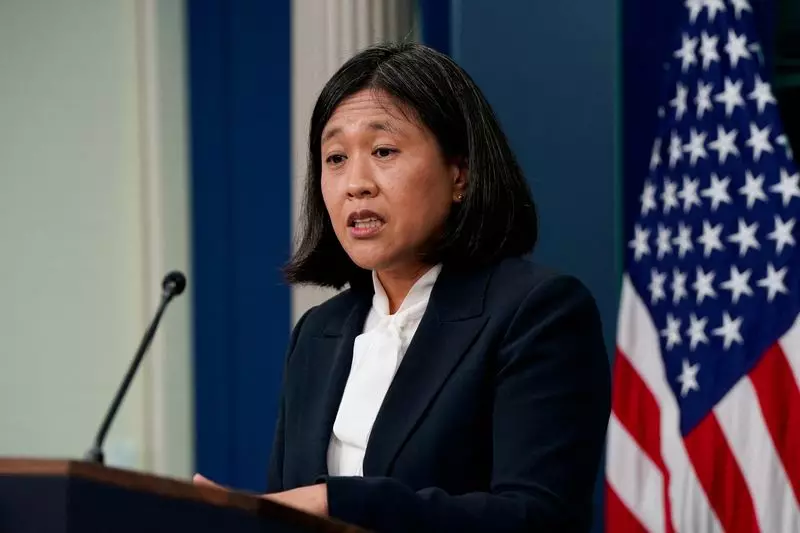In recent days, a coalition of bipartisan U.S. senators has raised alarms regarding the ongoing trade negotiations being conducted by the U.S. Trade Representative (USTR) Katherine Tai. The core of their grievance lies in the allegations that these discussions, which involve pivotal trading partners such as Mexico, Canada, and Colombia, are being held in secrecy and may compromise investor protections enshrined in existing U.S. trade agreements. Led by distinguished figures from both sides of the aisle, Senate Finance Committee Chairman Mike Crapo and top Democrat Ron Wyden, the senators are urging for increased transparency and consultation with Congress before any changes are finalized.
The letter signed by the senators suggests that the urgency with which the USTR is pursuing these negotiations could lead to hasty decisions regarding the interpretation and enforcement of investment protections prior to the inauguration of President-elect Donald Trump. This situation has sparked contentious debates among lawmakers, with some emphasizing the need for robust investor protections while others are calling for a reassessment of the power granted to corporations through settlement procedures. The timing of these negotiations — conducted in the waning days of a presidential administration — raises significant concerns about accountability and oversight.
A representative within the USTR’s office defended the agency against claims of secrecy, articulating that consultations with congressional members had been taking place despite the absence of a legal obligation to do so. However, the nature and content of these discussions remain largely opaque, as the USTR has not publicly disclosed the specific changes under consideration. This opacity feeds a growing sense of unease among legislators who fear that the outcomes of these negotiations could alter the terms of existing trade agreements significantly, particularly regarding how investment disputes are resolved.
Across the political spectrum, opinions diverge sharply on the implications of potential changes to investment protections. On one hand, a cohort of Democratic lawmakers has pushed for the elimination of Investor-State Dispute Settlement (ISDS) mechanisms, arguing that such provisions disproportionately empower corporations and could undermine domestic policies aimed at protecting American jobs. Notably, Colombia’s President Gustavo Petro has expressed interest in renegotiating his country’s trade agreement with the U.S. to exclude ISDS provisions, reflecting a broader skepticism towards these frameworks among various governments.
Conversely, compelling voices from within the Republican Party alongside some Democrats have voiced apprehension about weakening investor protections. They warn that undermining these safeguards could inhibit U.S. firms’ abilities to seek redress in foreign jurisdictions, potentially exposing them to economic risks and unfair treatment. For instance, a group of 26 House members expressed concern that modifications might jeopardize established provisions in the U.S.-Mexico-Canada Agreement (USMCA) that serve to protect American investments.
If the senators’ concerns are validated, the potential repercussions could extend far beyond diplomatic relations with Mexico and Canada. Investors and corporations often rely on stable legal frameworks to safeguard their interests abroad, and changes to the ISDS could deter investment in countries perceived as riskier environments. An essential aspect to consider in this debate is the need for a balanced approach that respects both investor rights and the sovereignty of governments to regulate in the public interest.
The discourse surrounding these negotiations underscores the critical need for transparency in trade dealings and congressional oversight. As the USTR moves forward with discussions, it remains to be seen if the pressures exerted by lawmakers will lead to more inclusive processes that engage a wider array of stakeholders. Collaborative frameworks that recognize the complexities of trade dynamics while safeguarding investors’ rights will be paramount to maintaining the integrity of U.S. trade policy and fortifying relationships with international partners.
In essence, the current situation portrays a vivid tableau of conflicting interests, emphasizing the delicate balance of power between governments and corporations in the realm of free trade. The outcome of these negotiations could shape the landscape of international trade relations and set precedents for future agreements, making it imperative that they unfold under vigilant scrutiny and open dialogue.

